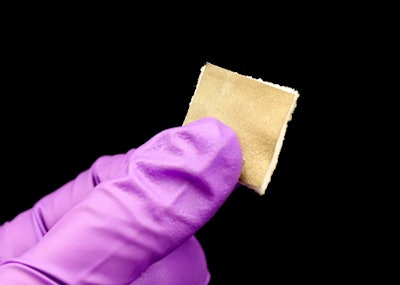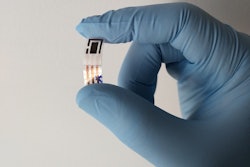
Yifan Wang
A recent INVERSE article discussed a new electronic skin that could very well outperform human skin with regard to sensitivity. The super-sensitive skin was developed by mechanical engineers at Singapore’s Nanyang Technological University who hopes to use it for robotic applications, to improve touch-screen interfaces, and restore the sense of touch in humans. It consists of two thin flexible fabric electrodes that encapsulate a layer of sponge-like material impregnated with ion-sensitive liquid. The combination creates a capacitor that can sense pressure changes and extremely sensitive differences in charge between the electrodes.






















